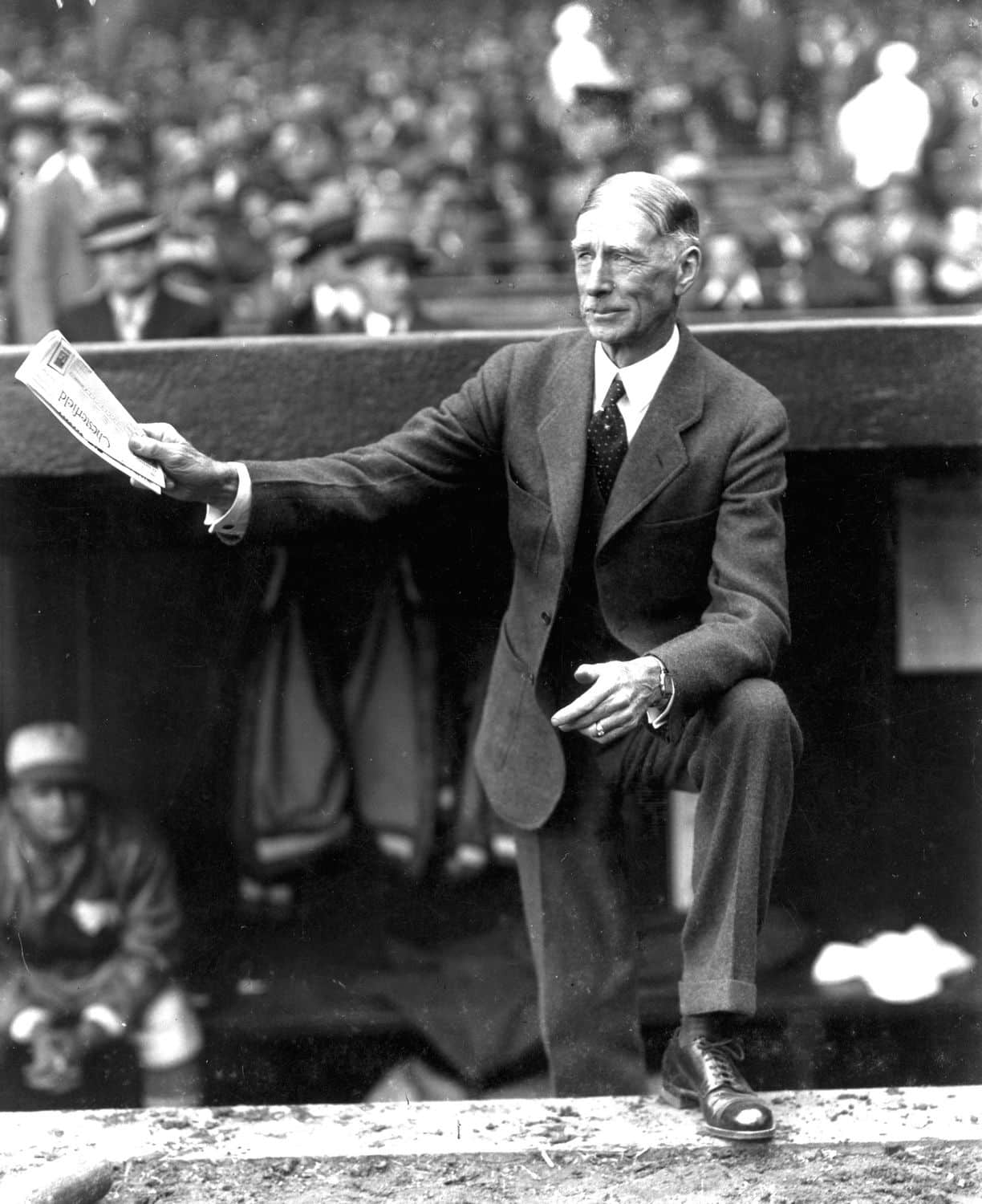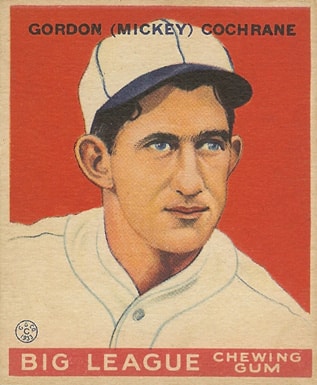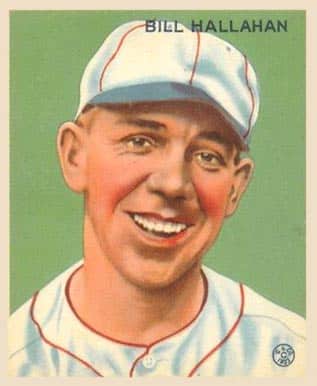
Jump to:
- #1. It Would Be Connie Mack's Last Win In A World Series
- #2. It Was The Last Time A Philadelphia Team Would Win A World Series Until 1980
- #3. Lefty Grove And George Earnshaw Were Too Much For The Cardinals
- #4. This Would Be The Start Of Cardinal Dominance In The National League.
- #5. Game 1 Was Decided With Timely Hitting
- #6. The Cardinals Shut Down The Athletics In Game 3
- #7. Philadelphia Outscored The Cardinals 21 - 12
#1. It Would Be Connie Mack's Last Win In A World Series
The 1930 World Series would mark the end of an era.
Connie Mack had been a fixture in baseball ever since he began managing in the late 19th century.
He had built the Philadelphia Athletics into a powerhouse that created a dynasty in the 1910s and then again in the 1920s.
Mack's win would set the record of World Series wins to 5, which would take just over a decade to be passed when Joe McCarthy won 7 championships with the Yankees.

#2. It Was The Last Time A Philadelphia Team Would Win A World Series Until 1980
The Philadelphia Athletics was the star of Philadelphia in the early part of the 20th century, but they would not remain that way.
They would appear in the 1931 World Series, which would be their last in the city of Philadelphia. The team would be moved to Kansas City in 1955 and then to Oakland in 1968.
The club would win 4 more World Series championships as Oakland.
#3. Lefty Grove And George Earnshaw Were Too Much For The Cardinals

Philadelphia's pitching ace, Lefty Grove, and George Earnshaw, the No. 2 man in Mack's rotation, won two games apiece.
Earnshaw also pitched seven scoreless innings as a Game 5 starter but ended up with a no-decision as Grove relieved him in the eighth and took the win on Jimmie Foxx's two-run homer in the top of the ninth for the game's only scoring.
In Game 6, Earnshaw earned his second win on just one day of rest, pitching a five-hitter; it would be 88 years before another pitcher would start consecutive games in the postseason.
#4. This Would Be The Start Of Cardinal Dominance In The National League.
Although the Cardinals lost, this would mark the beginning of a great run for the ballclub.
They would win the pennant three times between 1930 and 1934 and the World Series in 1931 and '34.
When folks talk about great baseball dynasties, the Yankees always spring to mind; however, from 1926 - 1934, the Cardinals were just as dominant.
The Athletics would get the better of them this season, but the following season, they would not be so lucky.
#5. Game 1 Was Decided With Timely Hitting

The A's managed only five hits off of Grimes in Game 1, but all were for extra bases, and each produced a run in five different innings. Al Simmons and Mickey Cochrane hit solo home runs for the A's, helping Lefty Grove to a 5–2 win.
The A's struck first in the bottom of the second when Jimmie Foxx tripled and scored on Bing Miller's sacrifice fly.
The Cardinals loaded the bases in the third on three straight leadoff singles, then Taylor Douthit's lineout and Sparky Adams's sacrifice fly scored a run each.
Simmons's home run in the fourth tied the game. In the sixth, Max Bishop walked with one out and scored on Foxx's double.
Next inning, Mule Haas tripled with one out and scored on Joe Boley's groundout. Cochrane's eighth-inning home run gave the A's their last run of the game.
#6. The Cardinals Shut Down The Athletics In Game 3

After the A's loaded the bases in the top of the first, Hallahan settled down and pitched a shutout. Philadelphia left a total of 11 men on base.
The Cardinals scored the game's first run on Taylor Douthit's home run in the fourth, then the next inning hit three consecutive one-out singles, the last of which by Charlie Gelbert scoring a run. In the seventh, Bill Shores allowed three consecutive leadoff singles, the last of which by Jimmie Wilson scoring two runs.
Next inning, the Cardinals added another run off of Jack Quinn on back-to-back one-out doubles by Jim Bottomley and Chick Hafey.
#7. Philadelphia Outscored The Cardinals 21 - 12
While much can be said about the dominance of Lefty Grove and George Earnshaw, the Athletic offense played some good ball as well.
During the 1930 World Series, they blasted home runs in 4 of the 6 games and held big leads that allowed their pitchers to stay comfortable.
Future Hall of Famers Cochrane, Simmons, and Foxx had a good series, with each driving in timely runs.
